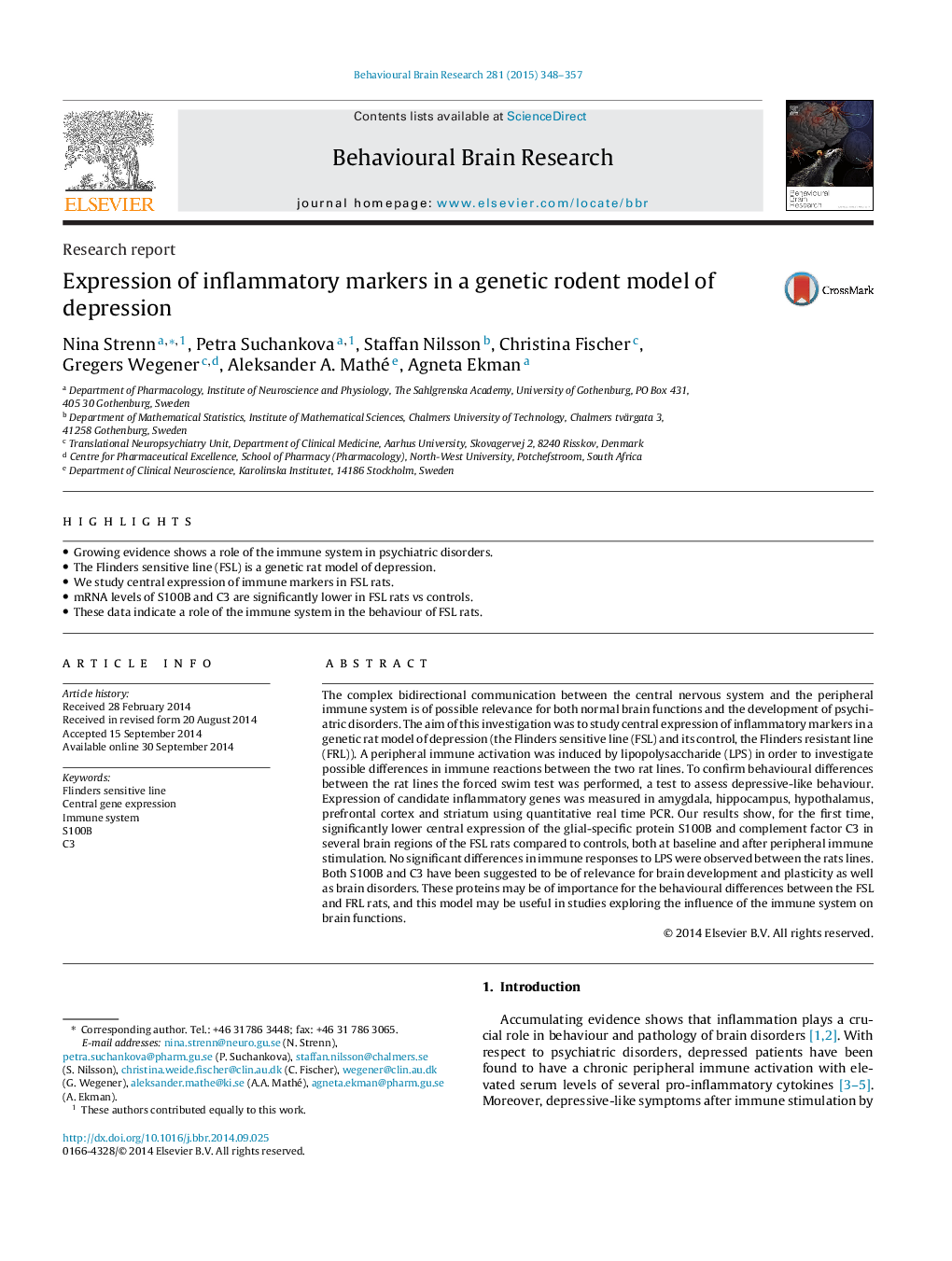| Article ID | Journal | Published Year | Pages | File Type |
|---|---|---|---|---|
| 6257046 | Behavioural Brain Research | 2015 | 10 Pages |
â¢Growing evidence shows a role of the immune system in psychiatric disorders.â¢The Flinders sensitive line (FSL) is a genetic rat model of depression.â¢We study central expression of immune markers in FSL rats.â¢mRNA levels of S100B and C3 are significantly lower in FSL rats vs controls.â¢These data indicate a role of the immune system in the behaviour of FSL rats.
The complex bidirectional communication between the central nervous system and the peripheral immune system is of possible relevance for both normal brain functions and the development of psychiatric disorders. The aim of this investigation was to study central expression of inflammatory markers in a genetic rat model of depression (the Flinders sensitive line (FSL) and its control, the Flinders resistant line (FRL)). A peripheral immune activation was induced by lipopolysaccharide (LPS) in order to investigate possible differences in immune reactions between the two rat lines. To confirm behavioural differences between the rat lines the forced swim test was performed, a test to assess depressive-like behaviour. Expression of candidate inflammatory genes was measured in amygdala, hippocampus, hypothalamus, prefrontal cortex and striatum using quantitative real time PCR. Our results show, for the first time, significantly lower central expression of the glial-specific protein S100B and complement factor C3 in several brain regions of the FSL rats compared to controls, both at baseline and after peripheral immune stimulation. No significant differences in immune responses to LPS were observed between the rats lines. Both S100B and C3 have been suggested to be of relevance for brain development and plasticity as well as brain disorders. These proteins may be of importance for the behavioural differences between the FSL and FRL rats, and this model may be useful in studies exploring the influence of the immune system on brain functions.
